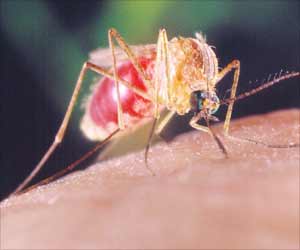- High humidity and mosquito breeding during monsoon season lead to a rise in brain infections, particularly viral encephalitis, in India’s coastline and rice belt regions
- Children and the elderly are especially vulnerable to these infections due to weaker immune systems
- Preventing mosquito breeding and ensuring timely medical intervention is crucial in combating these brain infections
Doctors have warned of an increase in brain infections in India’s coastline and rice belt regions during the rainy season. High humidity and increased mosquito breeding in these places cause an increase in cases of viral encephalitis and other brain illnesses, which mostly impact these populations, with children and the elderly being particularly vulnerable.
Advertisement
What is Viral Encephalitis?
A brain infection, also known as encephalitis, is when bacteria, viruses, fungus, or parasites infect the brain and cause inflammation (1). These infections can cause significant inflammation and damage the brain structures, potentially resulting in a variety of neurological symptoms. Brain infections, which are relatively uncommon in affluent countries, remain a major public health concern in South Asian countries such as India. The frequency of brain infections rises during the monsoon season due to ideal conditions for mosquito reproduction, which transmits various viral illnesses including dengue and Japanese encephalitis.
According to current data from The Lancet Global Health, endemic zones for viral encephalitis in India include coastal regions such as Karnataka and Odisha, northeastern states such as Assam and Tripura, and northern states with rice belts such as Bihar and Uttar Pradesh (2).
Advertisement
Common Signs of Brain Infection
Dr. Sanjay Pandey, HoD of Neurology and Stroke Medicine at Amrita Hospital in Faridabad, stated, “Brain infections can be viral, bacterial, tubercular, fungal, or protozoal. The most common signs of a brain infection include fever, headache, vomiting, seizures, and altered consciousness. Children and the elderly are particularly susceptible to such diseases due to their weakened immune systems. During this season, parents should keep an eye out for signs in their children, such as rashes and loss of consciousness. Early action is critical for controlling these infections effectively and improving patient outcomes. Preventing mosquito breeding and defending against mosquito bites are critical steps. If not treated promptly, viral encephalitis can lead to parkinsonism, dystonia, and tremor.
Advertisement
Treatment of Brain Infection
“In India, therapies for brain infections vary according to the nature and source of the infection. Antibiotics are commonly used to treat bacterial illnesses, whereas antiviral drugs are used to treat viral infections such as Japanese encephalitis and dengue fever. Early action is critical for controlling these infections effectively and improving patient outcomes. Preventing mosquito breeding and defending against mosquito bites are critical steps. If not treated promptly, viral encephalitis can lead to parkinsonism, dystonia, and tremor. Tubercular brain infections necessitate a long course of anti-tuberculosis medication. Antifungal drugs are prescribed to treat fungal infections. Supportive therapy, including anti-seizure medications, corticosteroids to decrease inflammation, and hospitalization, is frequently required. Advanced cases may necessitate intense care and surgical treatments. Access to these medicines varies, with urban areas typically providing more extensive care,” he explained.
Role of the Indian Government to Combat Brain Infections
In the fight against brain infections, the Indian government can play a critical role by improving hospital facilities, assuring the availability of important treatments, and initiating public health initiatives to raise awareness about brain infections. Healthcare workers have an undeniable impact in this aspect since they offer crucial care, educate communities on prevention techniques, and recognize symptoms. To reduce the prevalence and impact of brain infections in India, the public, healthcare institutions, and governmental bodies must work together.
References:
- Understanding and managing acute encephalitis
(Kumar R. Understanding and managing acute encephalitis. F1000Res. 2020;9:F1000 Faculty Rev-60. Published 2020 Jan 29. doi:10.12688/f1000research.20634.1) - Etiological Profile and Clinico Epidemiological Patterns of Acute Encephalitis Syndrome in Tamil Nadu, India
(Kumar VS, Sivasubramanian S, Padmanabhan P, et al. Etiological Profile and Clinico Epidemiological Patterns of Acute Encephalitis Syndrome in Tamil Nadu, India. J Glob Infect Dis. 2023;15(2):52-58. Published 2023 May 2. doi:10.4103/jgid.jgid_179_22)
Source-Medindia



